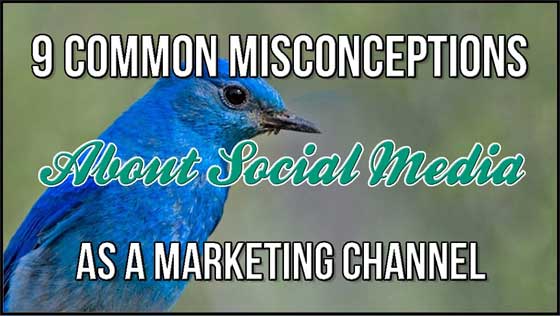Social media often gets a bad rap with small business owners, if they buy into the misconceptions about its value as a marketing channel. We’re here to set the record straight on some of these common beliefs:
Table of Contents
Toggle1. Social media is fun, but it’s only good for entertainment.
The perception that social media is not a tool for business is one that’s been around for some time. Harvard University recently joined the ranks of believers, however, with a Facebook following of more than 4 million. The institution is also making good use of Twitter to connect and network with people from all industries, proving that there’s more to it than entertainment value.
2. Our customers aren’t on social media, it’s only for teenagers.
This is a common objection from the C-suite, and nothing could be further from the truth. Whether your target audience is baby boomers or millenials, it’s on social media:
- Millenials, who are a primary target market for most industries, check their smartphones on average 45 times each day and are 56% more likely to access brand information on social media than anywhere else.
- Seniors are the fastest-growing group of social media users with 36% using social networking sites, according to figures from StatsCanada.
- In the U.S. 46% of older adults use social media, according to findings from the Pew Research Center.
3. It takes too much time for small company owners.
Social media isn’t a 9 to 5 job. It’s actually a 24/7/365 job! That doesn’t mean you have to spend hours each day on it, though. There are many ways to do quality social media marketing using available tools such as HootSuite, or you can outsource to a marketing service provider. It’s too important to ignore, and it’s not a job for interns and students—in spite of what your teenage nephew would have you believe!
4. You should only post updates promoting your own content and products.
Wrong! This is one of the common misconceptions that can kill your social media marketing efforts stone-dead. Users aren’t interested in following profiles that sing the same “buy my product” song several times a day (or week!). They are more likely to follow and engage with you if you’re posting updated news and information about your industry, tips and tricks, items of interest and even funny stuff. Those are the things that go viral—not your latest product feature. And having more followers rather than less is important to social media marketing. After all, who will you market to if you don’t have any?
5. It invites negative comments, which can harm your business.
There’s a belief that social media offers an avenue for others to criticize your company. Here’s a newsflash: the Internet as a whole offers that, not just social media. The difference is that on social media you can respond, which you can’t do to negative reviews on some sites. And it’s not the comments that can harm you, it’s the way you handle them. Social media gives you a great opportunity to highlight your customer service practices and develop a wealth of evidence that you do, in fact, care about public opinion, take notice and work to correct problems.
6. Social media doesn’t convert prospects to customers.
The prevailing concern is that just because someone likes your page doesn’t mean they’re going to buy from you. Sure, there aren’t any guarantees that they’ll become a customer, but research from LinkedIn shows that 3 in 5 small businesses gain new customers by using social media. The key to making it work is to identify the most likely leads, and then reach out to them using other channels.
7. Social media strategy and campaigns are for big business only.
We aren’t sure where this one even comes from. Statistics showing that 88% of small businesses currently experiencing “hyper-growth” use social media to generate buzz about their company. That’s counter-intuitive to any thinking that only “big business” can afford to do social media, or that it isn’t viable for small companies.
8. Facebook advertising is a waste of money for small business.
Facebook advertising is actually too good to be true (almost):
- It’s very affordable
- You can target and segment very specific audience groups based on interests, location and other criteria
- You pay only for the ads that are actually seen or clicked on by your target audience (pay-per-click or pay-per-impression)
- You can cap the daily exposure to match your budget
- You can stop and start your ads at any time
Where else can small businesses get a deal that gives these benefits while at the same time giving them exposure to level playing fields with the big companies in their industries?
9. It’s difficult (or impossible) to measure the results.
Wrong again. As with other types of marketing, the ability to measure ROI depends on setting clear objectives, assigning values to your conversions, tracking your sales and analyzing the reports. It’s just as possible to do this with social media as with other forms of marketing, and many of the networking sites offer built-in analytics. All you have to do is know how to use them. Or outsource to a marketing professional who does.











